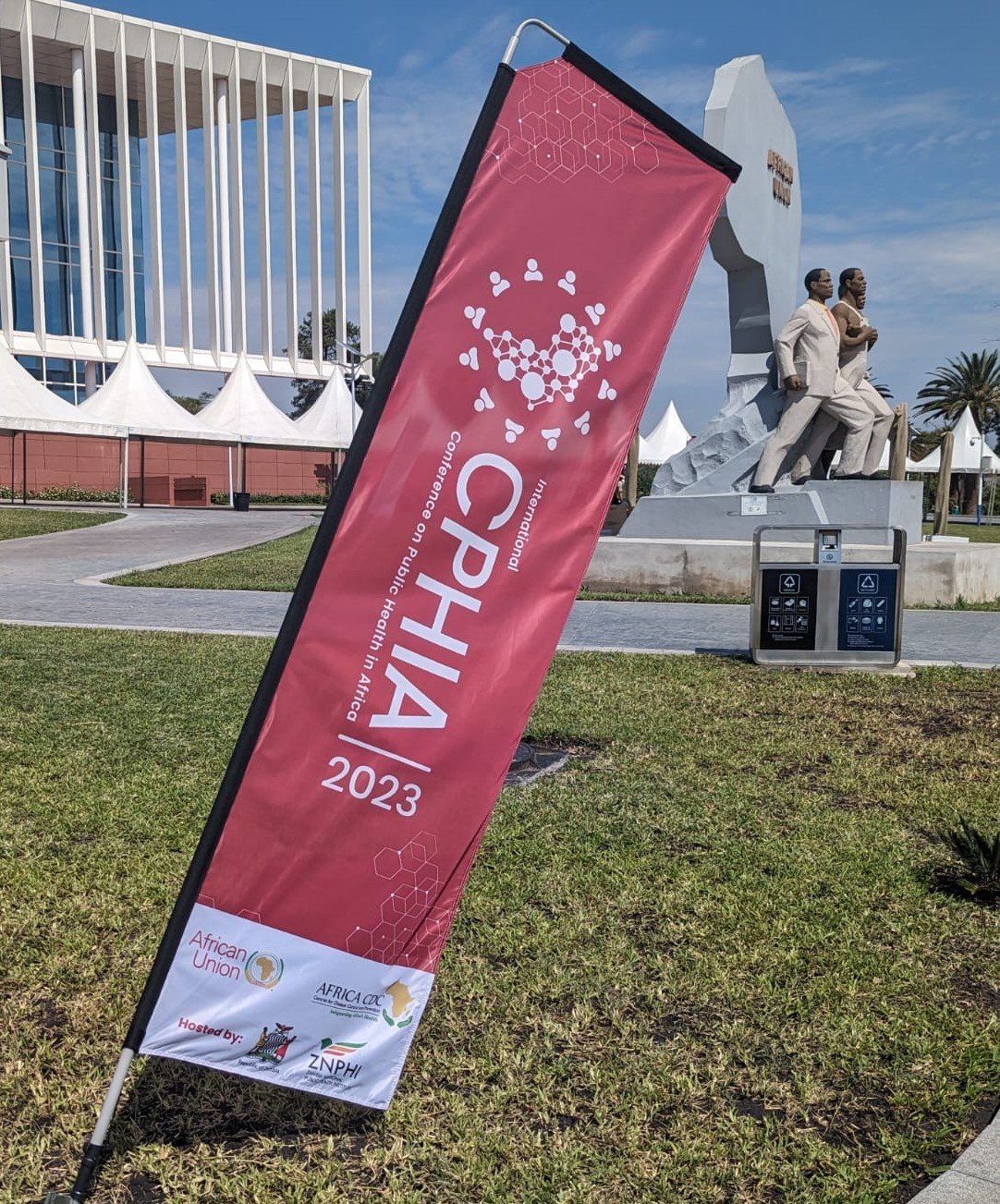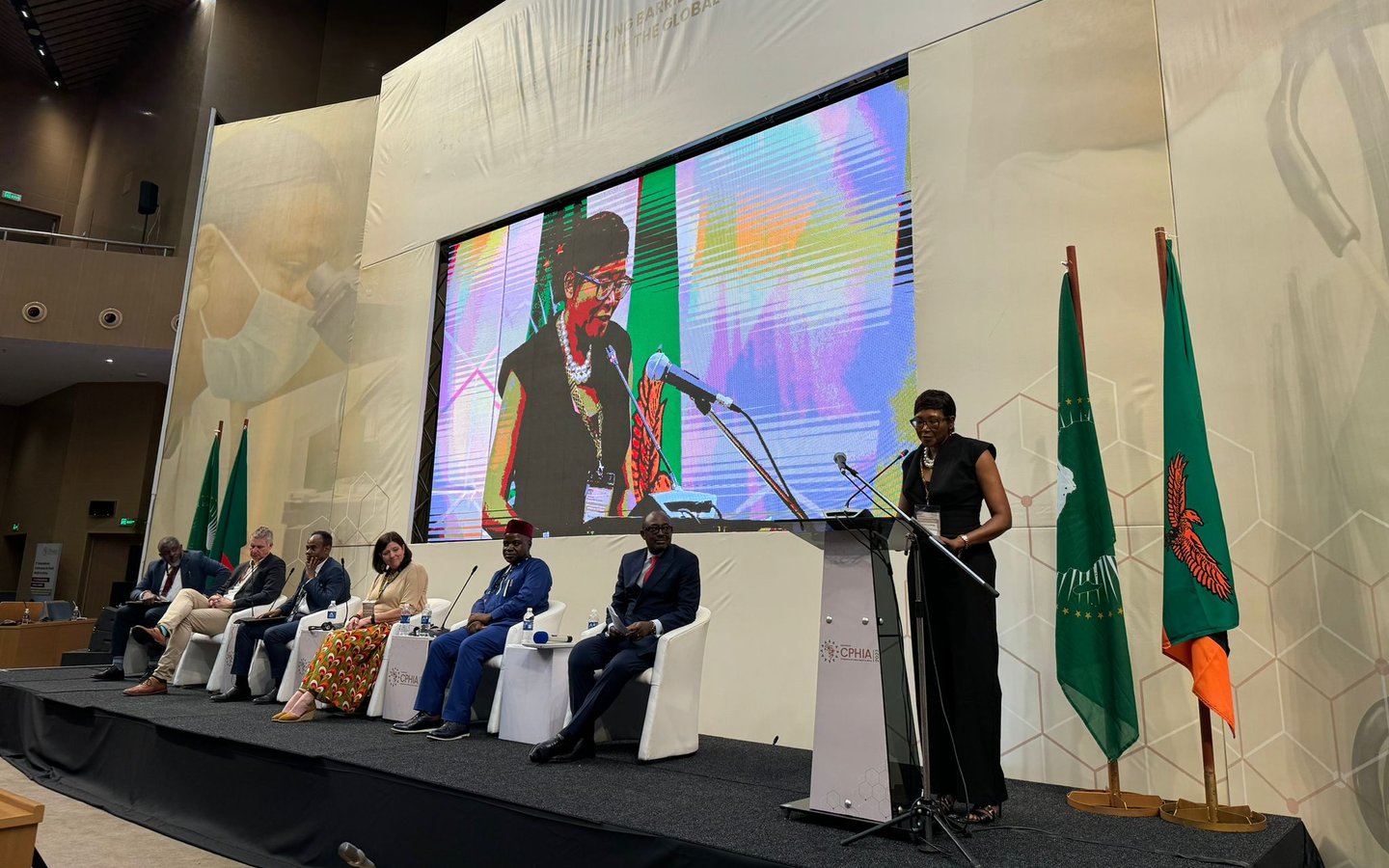Last week (27 - 30 November 2023), Uniting to Combat Neglected Tropical Diseases (NTDs) were delighted to be in Lusaka, Zambia attending the 3rd International Conference on Public Health in Africa (CPHIA), under the banner of ‘Breaking Barriers: Repositioning Africa in the Global Health Architecture’ and hosted by the Africa CDC and African Union, in partnership with the Zambian Ministry of Health and Zambia National Public Health Institute.
We were excited to join over 5,000 delegates including leaders from across the continent to talk about building more resilient health systems and how prioritising NTDs is key to this aim, as well as discussing with countries and organisations the importance of demand generation in order to mobilise resources for NTDs – central to Uniting’s strategy.

Here are some of our highlights from the conference:
‘Paradigm Shift: Towards sustainable access for NTD health technologies’
Our Executive Director Thoko Elphick-Pooley was a keynote speaker at GLIDE, Uniting Efforts, and DNDi’s session. She shared where we are now and what is still to be done to achieve sustainable access for NTD health technologies.
She stressed that building political will in budgeting and investing more in NTDs is the much-needed paradigm shift, saying:
"Country ownership is critical. We need countries that are affected by NTDs themselves to demand financing."
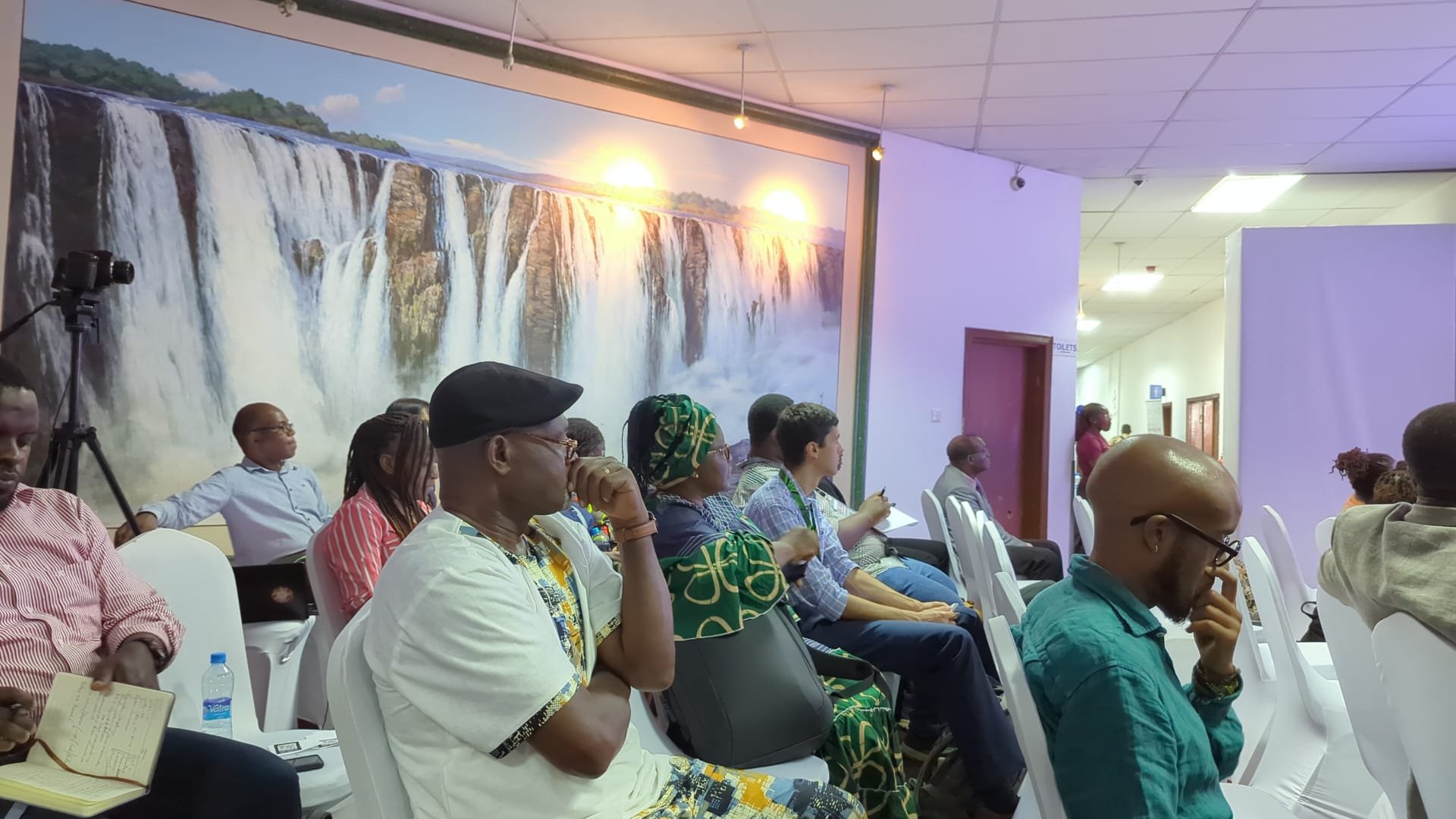
The side event then moved to a panel discussion, and we were pleased to hear panellists from DNDi East Africa, Paediatric Praziquantel Consortium, and Medicines Development for Global Health (MDGH) say how we should stop putting the stress of NTDs on neglected, but rather talk about them as major health problems that cause major economic impact.
They argued that providing this economic argument to countries will help with ownership of the problem especially in the African continent, putting less pressure on donor funding which is never guaranteed.
‘Future of Global Health Initiatives: The Future We Want to See’
At the Future of Global Health Initiative session, it was great to hear from the Minister of Health of Sierra Leone, Honourable Austin Demby. He said that issues should be country-led and quoted the President of Zambia, His Excellency Hakainde Hichilema, in saying:
"Africa is no longer shy in standing up for what it believes in and what it wants."
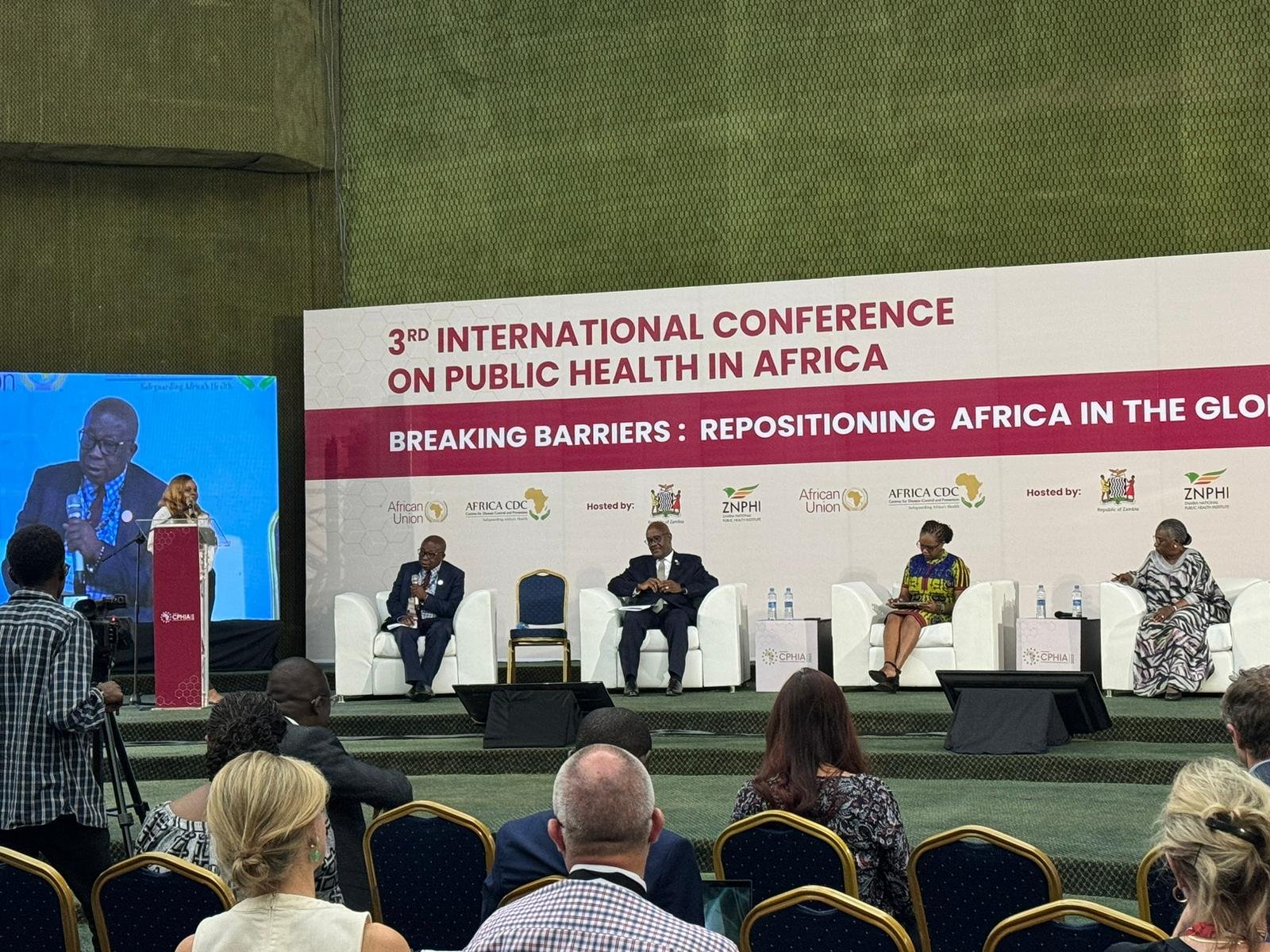
He stressed the interconnectedness of health issues, using an example for treating malaria:
“I don’t want the best malaria programme with the best nets, treatments, etc. if the patient dies of malnutrition. We need to ensure all services work together in the interest of the patient.”
Integration of treating health issues, particularly NTDs, was a key theme throughout the conference. We advocate for accelerating the integration of NTD services and interventions within national health systems as a central component of Universal Health Coverage (UHC). For more on that, read our UHC briefing.
‘Pandemic Preparedness and Resilient Financing Mechanisms for Africa’
At the session 'Pandemic Preparedness and Resilient Financing Mechanisms for Africa', Dr Matshidiso Moeti, WHO Regional Director for Africa, contributed to a great discussion on how to better align investment by global health initiatives to country priorities.
A representative from the UK Foreign, Commonwealth and Development Office (FCDO) talked about the wider funding architecture as it stands:
“The challenge on fiscal space and ODA means prioritising and maximising efficiencies, and reforming multilateral systems. We need a common vision on what global health will look like and what will need to be funded domestically and globally.”
Dr Moeti stressed how it is important that all partners, including private sector and CSOs, can see themselves in their government's national health frameworks and that a more person-centred approach will make us more efficient in the long term.
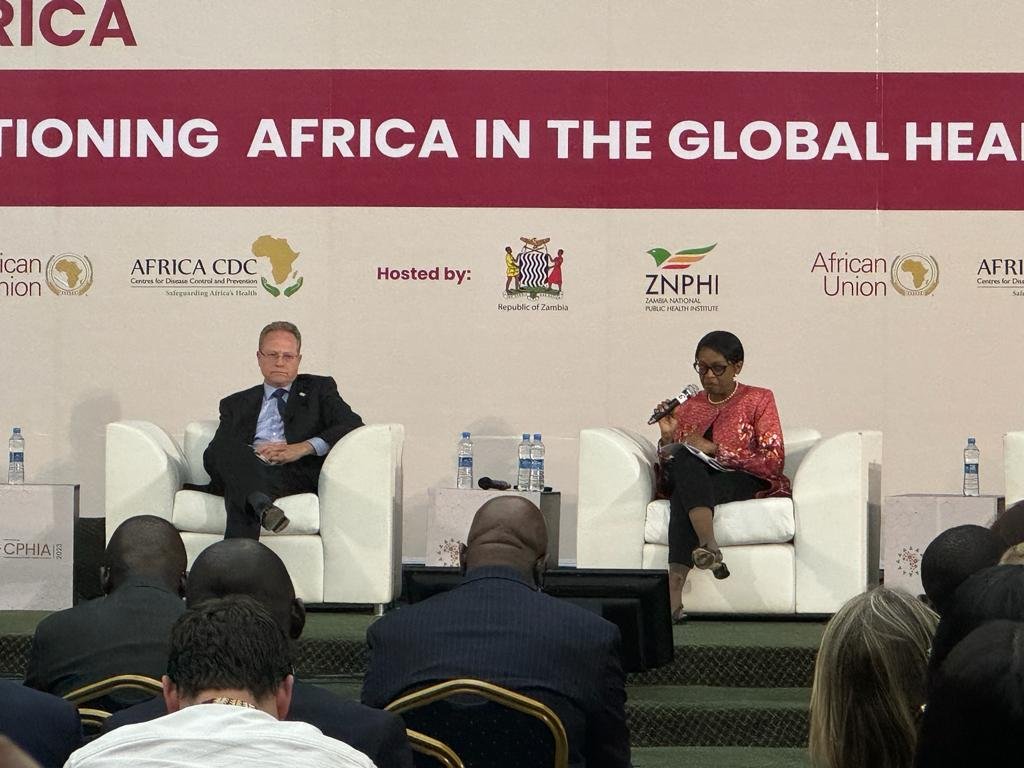
‘Combating Infectious Diseases, NTDs and Antimicrobial Resistance (AMR) in Africa’
Uniting to Combat NTDs Board Member Professor Francisca Mutapi spoke about NTDs and AMR, highlighting what is working and what are the critical gaps that need attention at the CPHIA plenary session. She had a rousing, powerful message calling for action to #BeatNTDs. She said:
"50 countries have eliminated at least one NTD, which is already halfway to our target of eliminating 100 NTDs by 2030. But people are still dying from these diseases. NTDs are unnecessary and unacceptable as we are perfectly able to treat them. But we don’t act upon this.”
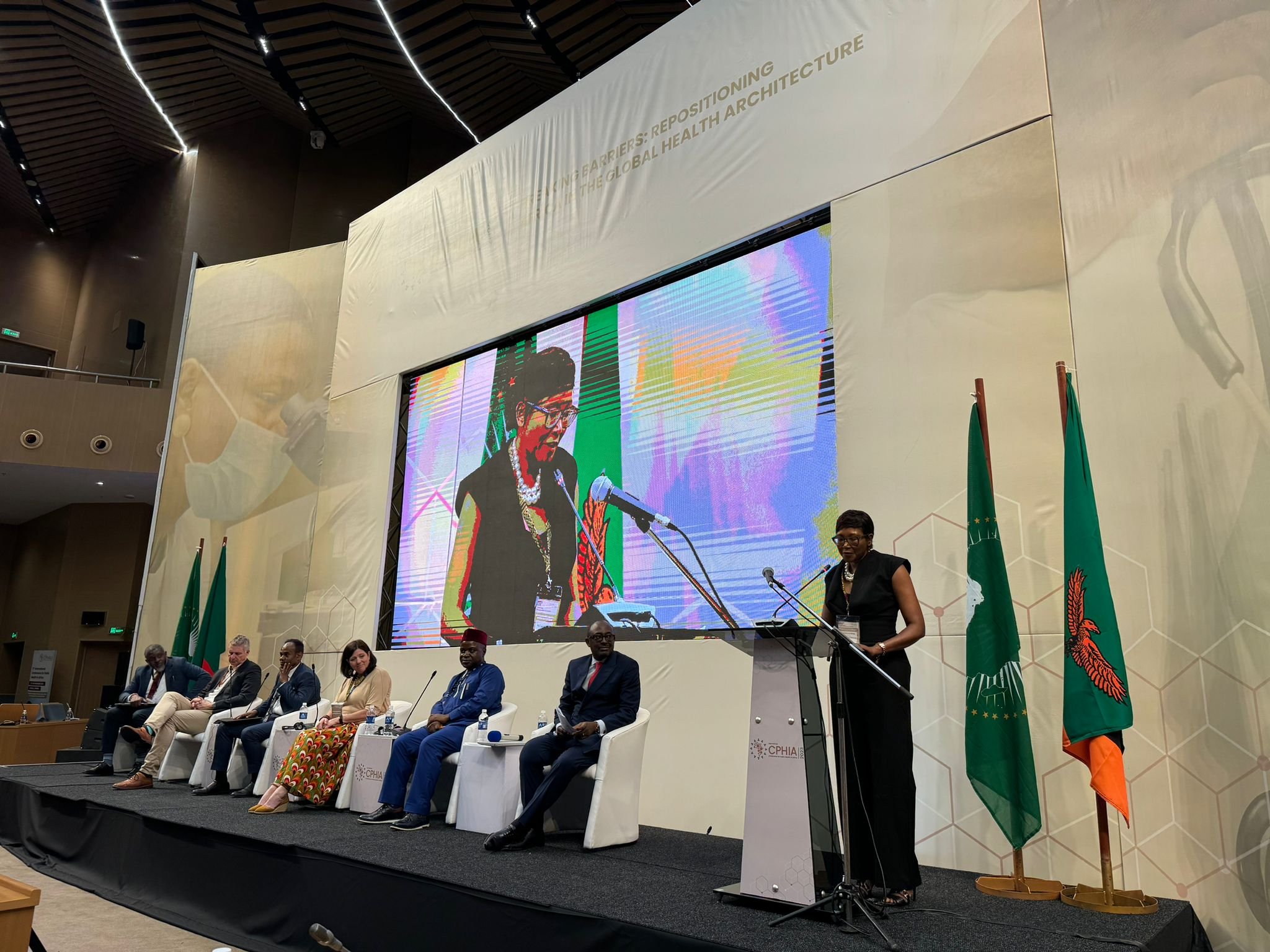
Professor Mutapi also highlighted the fact that NTDs can transition to non-communicable diseases such as cancer including cervical cancer. She stressed that:
“We need more investment in surveillance and diagnostics. We need to make prevention and control of NTDs a priority."
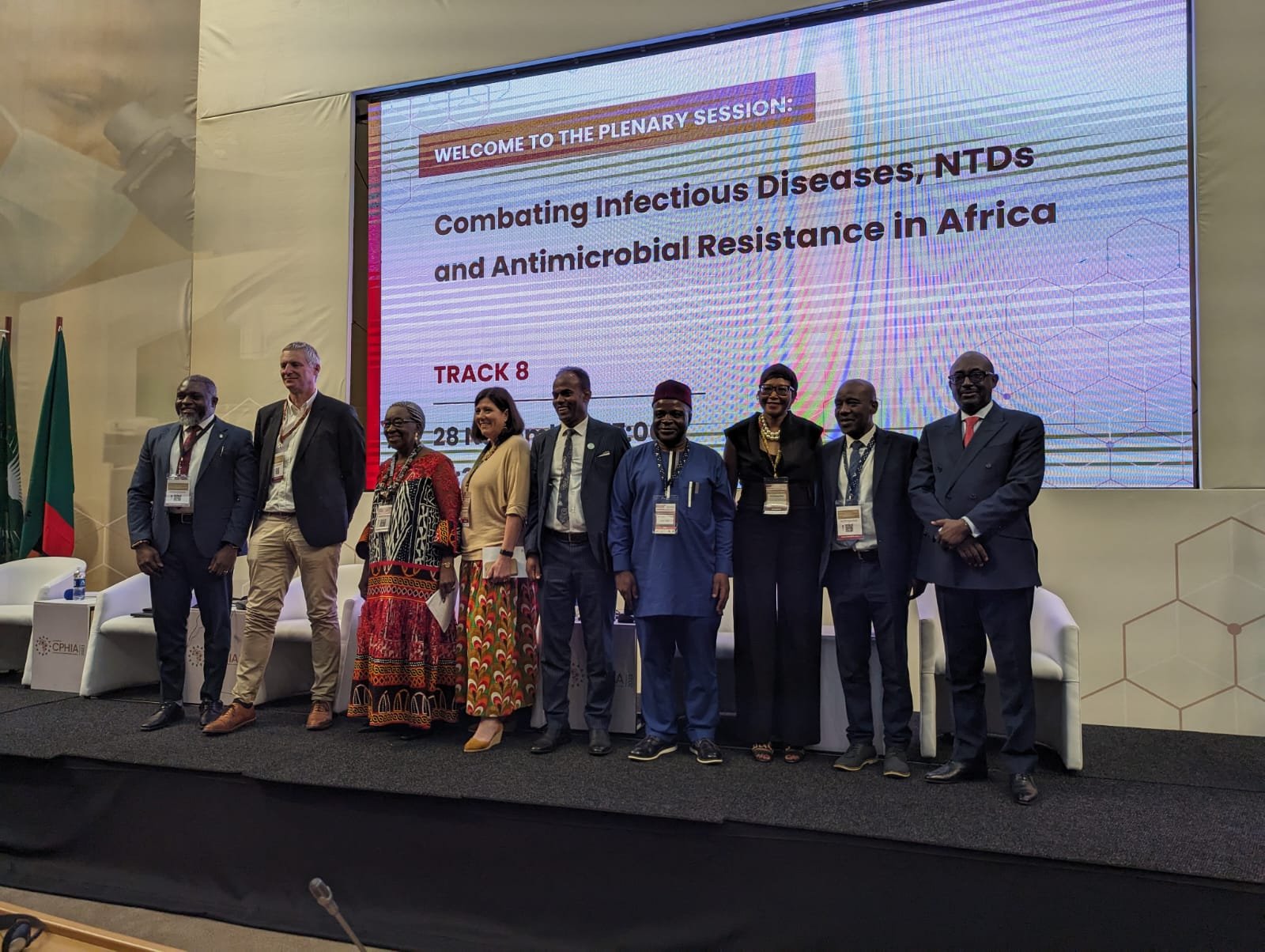
‘Looking into the future of NTDs: Is elimination in Africa within reach?’
Professor Mutapi also spoke as part of DNDi’s event on looking to the future. She talked on the need for sustainable investment:
"Every minute we don’t treat a patient, the disease becomes worse. Changes and reductions to aid budgets have significant impacts on available funding for interventions, and shifting funding priorities are making it more difficult to treat NTDs. There is a need for capacity building and partnerships."
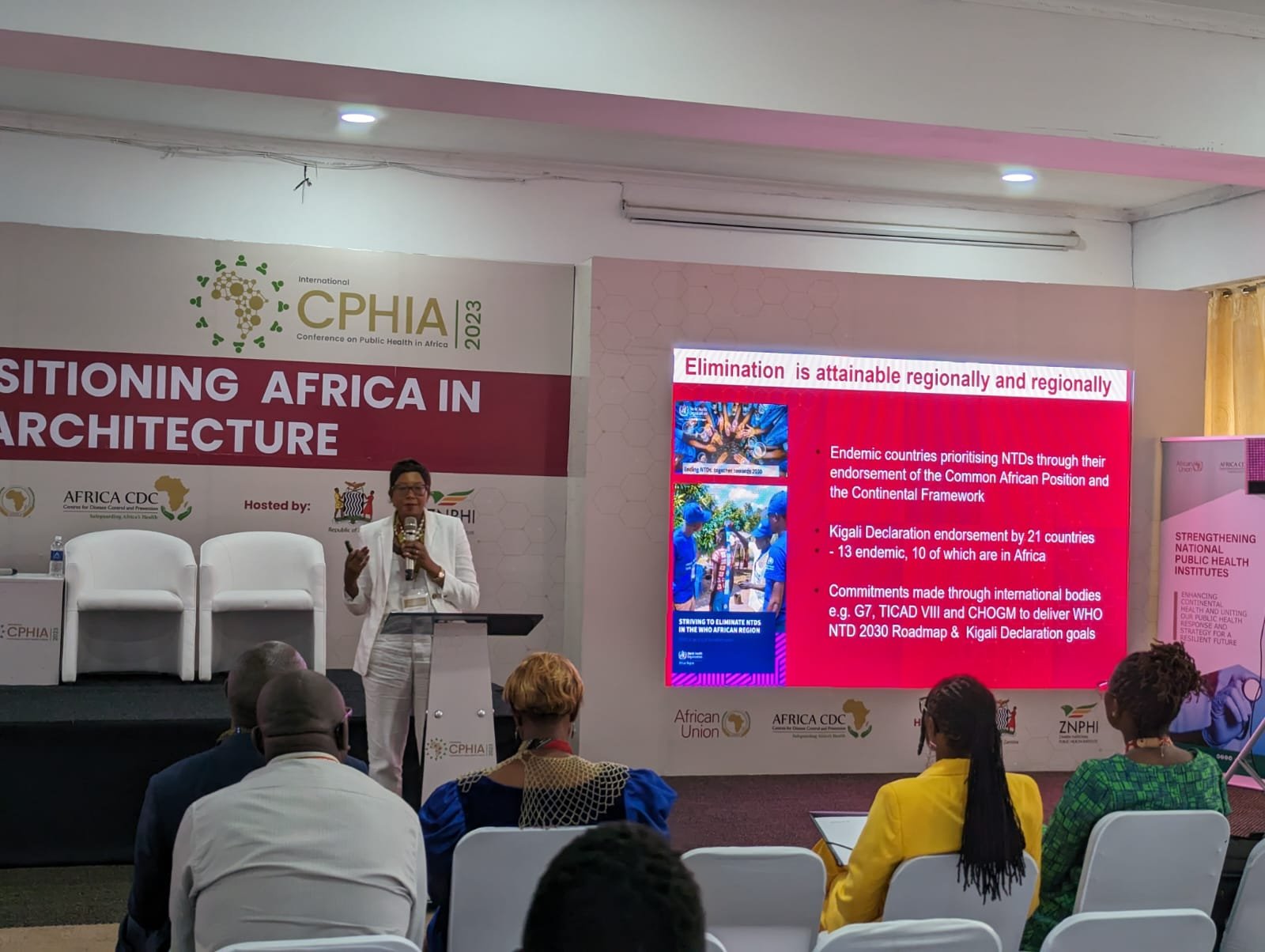
She also stressed the impact that climate change is having on NTDs, saying:
“Climate change is exacerbating the shift and spread of NTDs. In the recent past, there has been an increase and re-emergence of diseases such as sleeping sickness, dengue amongst others.”
NTDs should not be an after-thought
Overall, it was brilliant to see NTDs so prominent on the CPHIA agenda, and hear some great discussions coming out of the conference this year, particularly around the need for countries to prioritise NTDs moving forward.
There is clarity of vision as well as growing demand and energy in Africa to see the continent free of neglected tropical diseases. Political commitment has been sustained and energised through the Kigali Declaration on NTDs, and through the Continental Framework and Common Africa Position on neglected tropical diseases. Adopted by Heads of State across Africa, these act as guides in the fight against the diseases, calling for increased funding to eliminate them by 2030. They share a clear vision: to free Africa of all neglected tropical diseases by 2030.
Sustainable financing is critical to this and leads us into the next key moment for NTDs: Reaching the Last Mile Forum at COP28 where we are excited to see commitments and pledges for NTDs. More on this in our next round-up!
Thank you to the CPHIA organisers – and all partners. Together, we can #BeatNTDs for good.
